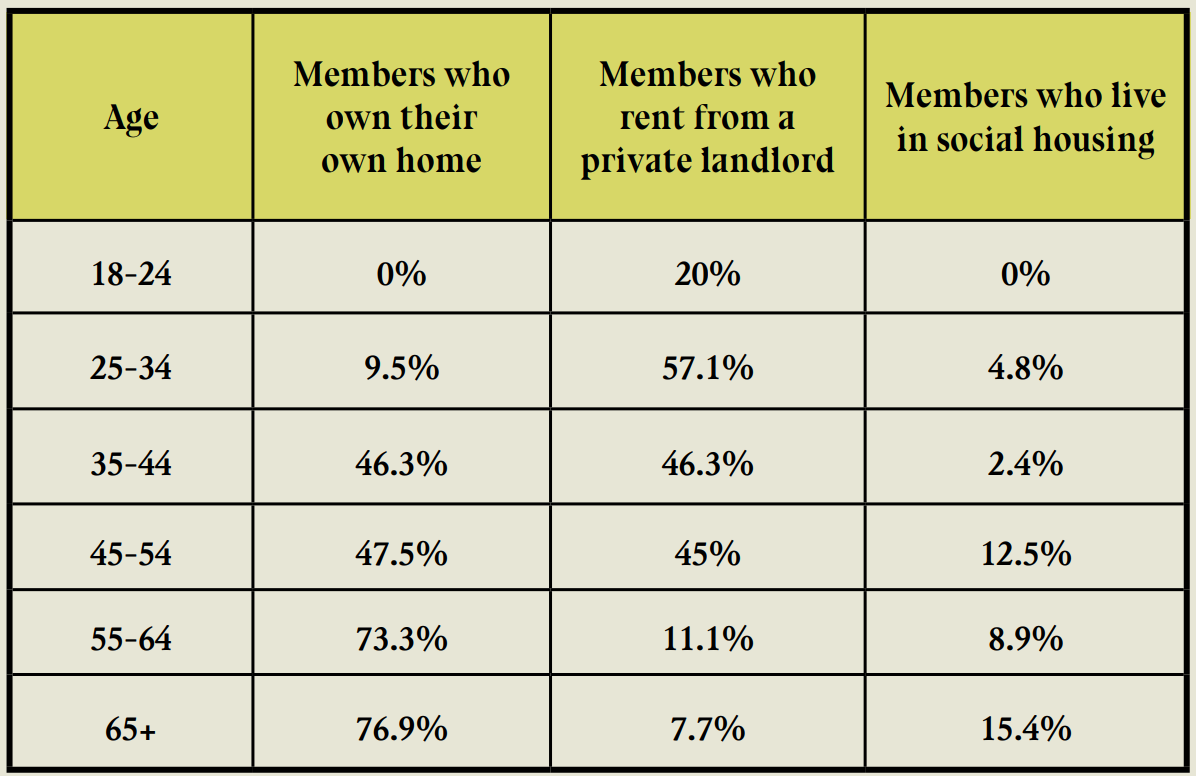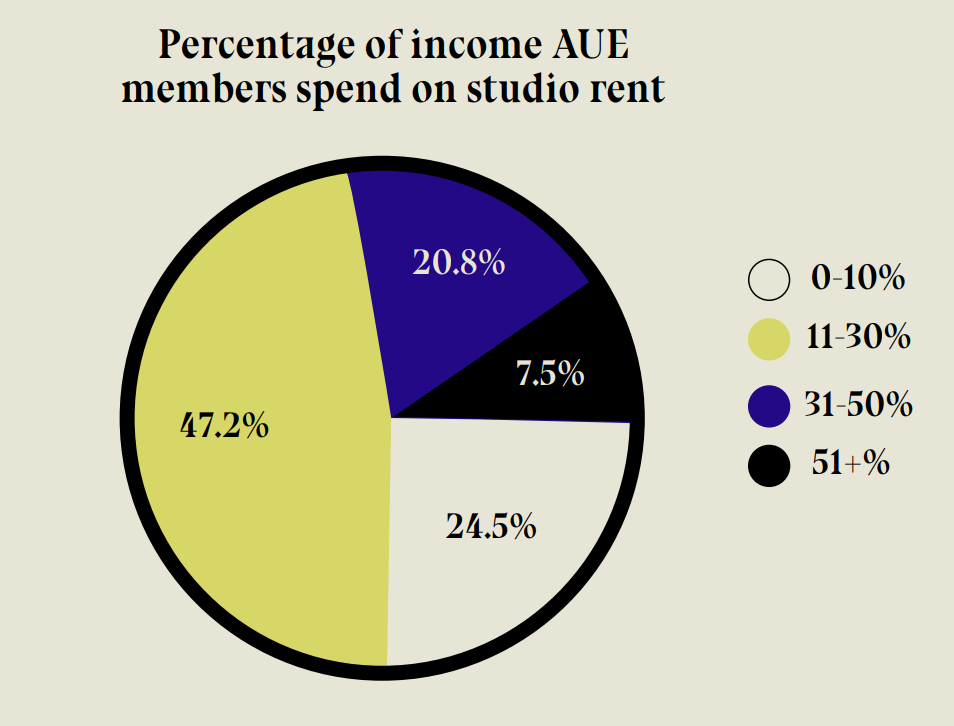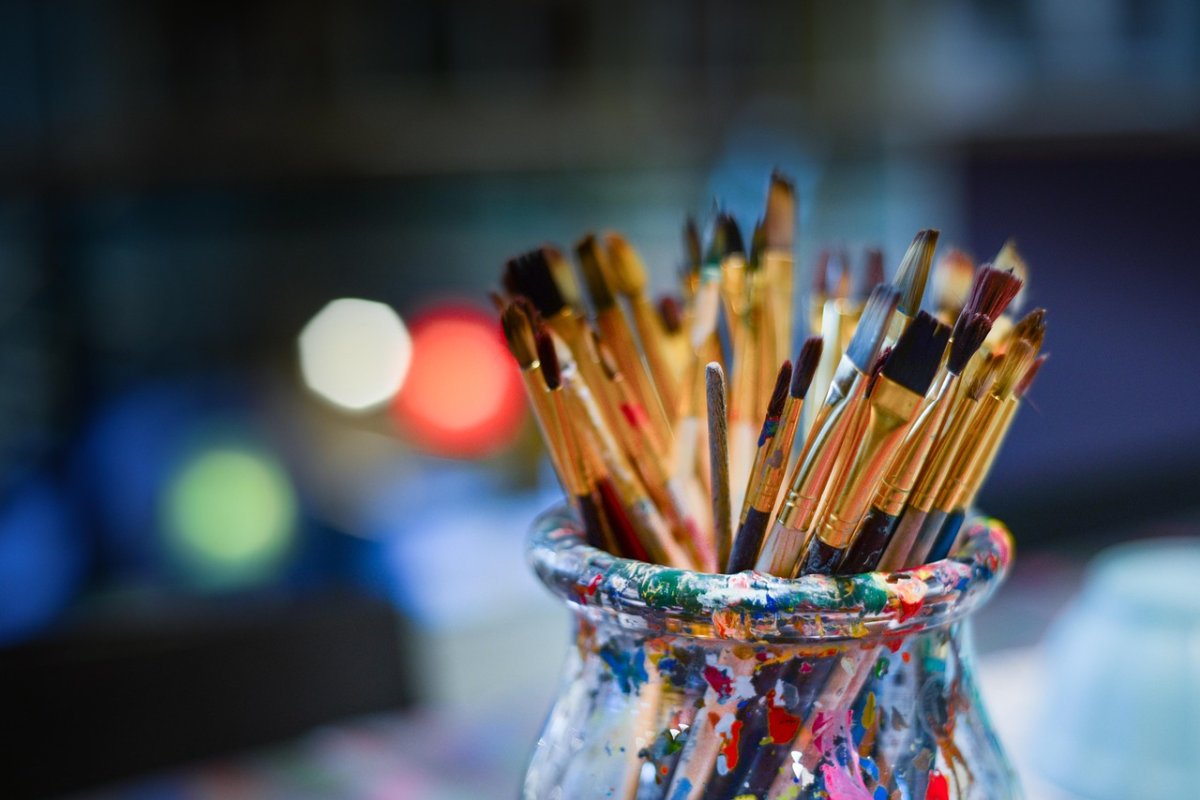A new report titled From “Hand to Mouth” to Bread and Roses was published by Industria. The Report presented the results of a survey on the livelihoods artists, over the responses of 168 individuals, representing 11.6% Artists Union England (AUE).
More than half reported having earned under £15,000 annually from all types of work, while the country's minimum was £21,673.60 for the year of the survey.
According to the key findings of the Report:
- 72% earned less than £20,000, again below the country's minimum (£21,673.60)
- 96.4% earned below the UK median wage, which was £35,004.
- 79% of AUE responded that "they did not earn enough from their art practice to live on, with most members having to take on additional jobs";
- 40.5% reported they have an additional job (55.4% within the art sector, and 44.6% outside arts).
- 33.3% of the AUE members surveyed said that they relied on familial or spousal support in order to keep working as artists.
As noted in the Report, artists' earnings in other recent studies are likely over-estimated, as not taking into consideration essential expences such as the costs of renting artistic studios or other art-making-related costs.
Cuts on cultural fundings and welfare, on top of shrinking job opportunities in Education
Financial stability for artists in the UK was severely affected by state cuts to both cultural and welfare funding. As quoted by participants: “We live hand to mouth with no safety net” and “I am concerned about the lack of funding for the arts as I often use public funding such as Arts Council England. I have also been affected by the change in Universal Credit support and am now unable to get support to subsidise the terrible pay as a fulltime artist”.
Limitations on artists' earnings were also imposed by a shrinking trend on job opportunities for artists in the education sector. It was estimated that in 2020, available job posts for artists as lecturers in art schools and universities or as art teachers to the secondary and higher education, decreased by two thirds over the previous 35 years.
Litte or No Savings and No Pension Plans for over 70% of Participants
“Being an artist does not allow me to save for the future” stated one of the members of AUE, expressing the majority of participants who have little or no savings at all, and are going to solely rely on the State Pension for retirement. Over 75% of artists expressed serious concerns about their financial future, when reaching reaching retirement age.
“I am never going to have earned enough to live off a pension and or retire”, said one of the respondents, while 78.6% reported not making voluntary payments to a pension as part of their self-employment . “I will have to work until death for sure” quoted another artist, as 71.4% of participants reported not making payments to a pension scheme through PAYE jobs either.
Majority of Artists are exposed to fluctuacting renting costs
Compared to general population, artists of AUE were less likely to own their homes and more likely to rent privately, leaving them overexposed to the fluctuations of the costs in the renting market.

Only 36.9% of participants responded working from a studio, while the rest reported access to suitable studios as not affordable. According to 47.2% of respondents, a 11-30% of their income was paid to studio rent, while 20.8% of participants reported spending 31-50% of their income for renting a studio. For 7.5% of artists over half of their income was paid for studio renting costs.

On top of high costs, respondents reported a deterioration of the conditions and the size of the affordable studios, in terms of accessibility, sanitation, ventilation, and security issues, including lack of heating, leaks, damp, mould, pests and rodents. “The building is unsafe, toilets don’t work, running water is unclean, no locks on doors… the building is not really maintained or sanitary in any way”, stated one of the members.
Workers' Solidarity proposed as an essential step forward
According to the Report "The precarious, dilapidated, and expensive reality of artists’ studios is not something that can be fixed by good will, codes of practice, and affordable studio schemes alone. The problem is deeply rooted within the UK’s highly financialised, asset-driven economy and the machinations of capitalism at large." As quoted by Dr Stephen Pritchard, "Our [artists] presence often becomes an accelerant in the processes of gentrification, which will ultimately price us out, along with the communities we are part of (or at least work alongside), leading to social cleansing".
Conclusions of the Report highlight the need to work against the marginalisation of artists as 'unproductive' members of the society. As such an notion is based on the idea of the 'entrepreneurial artist', the authors support unionising as of vital importance towards overturning such deteriorating income, working and housing conditions for all.
Find more here
Image by Rudy and Peter Skitterians from Pixabay - Free for use under the Pixabay Content License.










